Is it safe to eat liver during pregnancy?
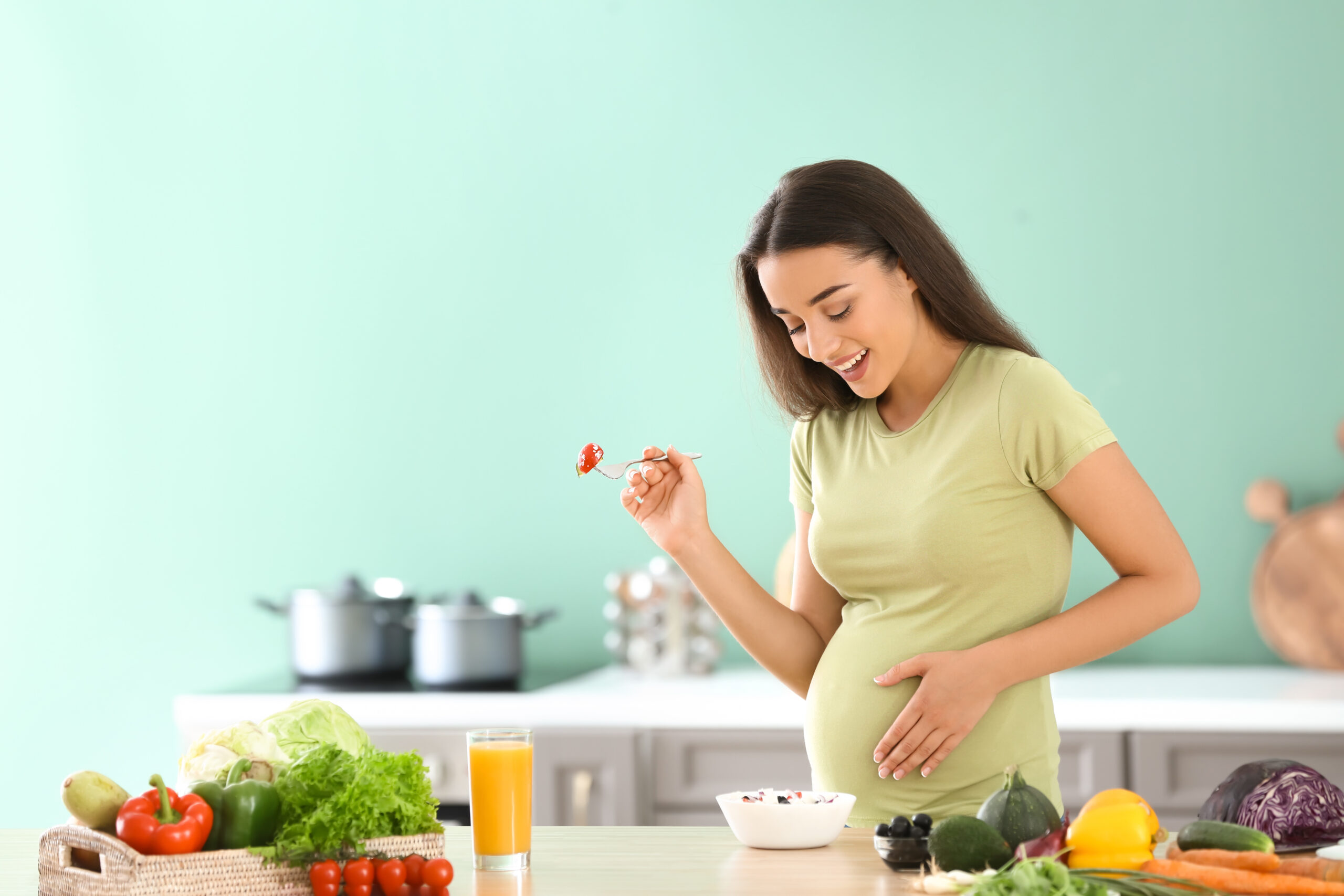
Last Updated 12/13/23
Liver consumption has been proven safe to eat, and very beneficial, in small quantities during pregnancy. In fact there has been at least some documentation that some traditional cultures have prized some organ meats, like liver, specifically for fertility and pregnancy. In fact, even though some modern nations, like America, are less accustomed to having these on the table, cultures all over the globe still prize these meats, often because of their nutrient density.,
The following chart shows just how robust liver is for so many key pregnancy nutrients. (Please keep in mind that the amounts of any specific nutrient can vary wildly, depending on study or source. The table here should be considered an approximation.)
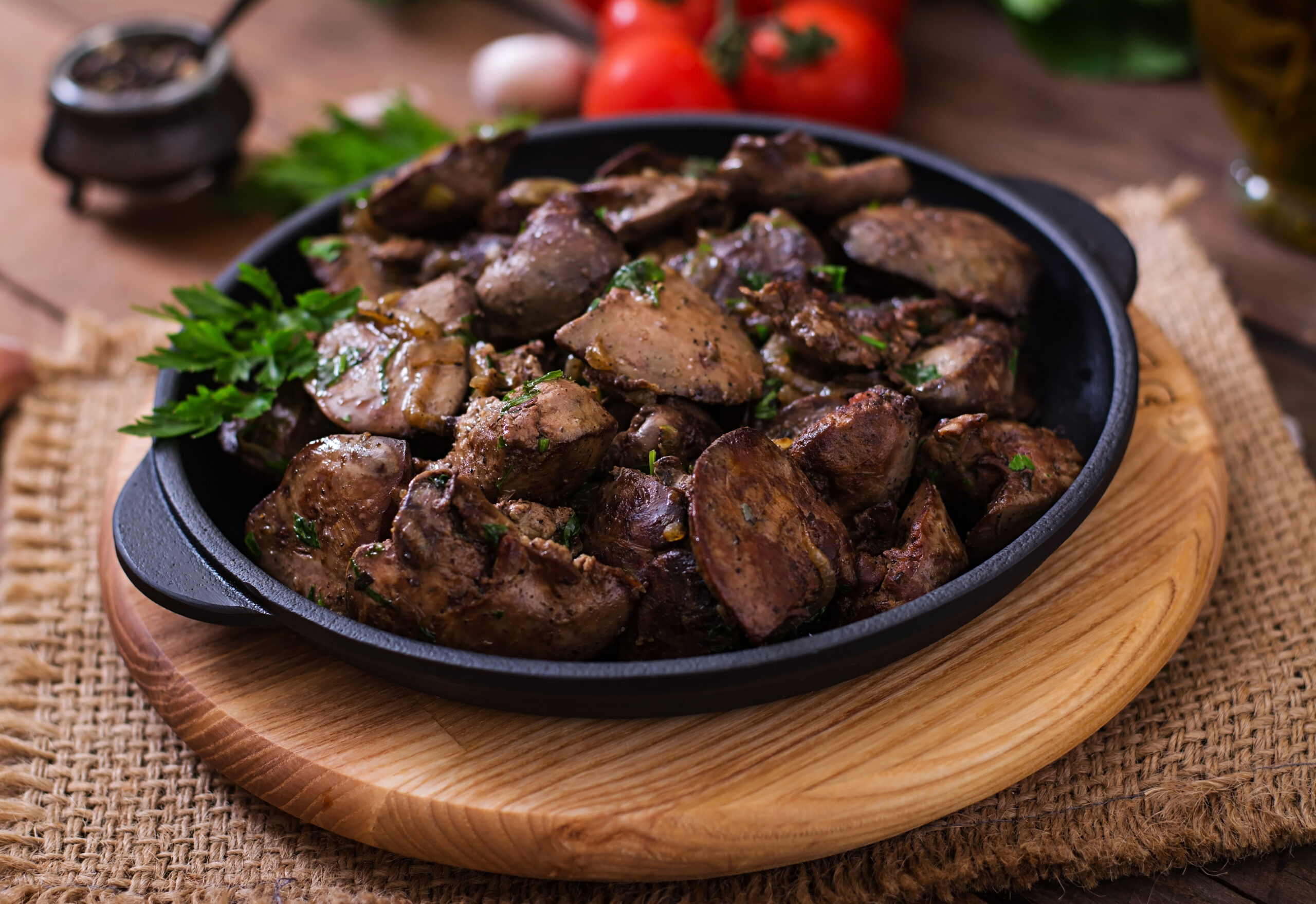
| Essential Nutrients for growth and development During Pregnancy | ||
| Key Nutrient | Approximate Recommended Daily Values during Pregnancy | Approximate amount contained in a 3-ounce (85 gram) serving of liver |
| Vitamin A
*See subsection on Vitamin A toxicity below |
Current recommendation: 800 μg/mcg
Upper limit when supplementing: <3,000 μg/mcg, “up to [3,000 μg/mcg]…after the first 60 days of gestation.” Upper limit of dietary intake: <4,500 μg/mcg |
6,582 μg/mcg |
| Vitamin B2 (Riboflavin) | 1.4 mg | 2.9 mg |
| Vitamin B3 (Niacin) | 18 mg | 15 mg |
| Vitamin B5 (Pantothenic Acid) | 6 mg | 8 mg |
| Vitamin B6 (Pyridoxine) | 1.9 mg | 1.0 mg |
| Vitamin B9 (Folate) | 600 mcg | 212 mcg |
| Vitamin B12 | 1.4 – 2.6 mcg | 70 mcg |
| Vitamin C | 85 mg | 20 mg |
| Vitamin D | >600 IU | 42 IU |
| Heme Iron | 27 mg | 5 mg |
| Copper | 1,300 mg | 12,400 mg |
| Calcium | 1,000 mg | 9 mg |
| Choline | 450 mg | 359 mg |
| Iodine | 220 mcg | 14 mcg |
| Zinc | 11 mg | 10 mg |
| Selenium | 60 mcg | 94 mcg |
| Phosphorus | 700 mg | 350 mg |
| Protein | First Trimester: 46 g/day
2nd & 3rd Trimesters: 71 g/day |
20-25 g |
Of the list above, liver provides most if not all of the recommended daily consumption for pregnant women, leaving just Vitamin D, calcium, iodine and iron. Even Omega-3 fatty acids can be obtained from liver, but likely only if the animal has been grass-fed, rather than conventionally raised beef, for example. The above list is not exhaustive of every nutrient needed for optimal fetal development, but does give a foundational understanding for some important prenatal vitamins.
How Much Liver Should I Consume When Pregnant?
The bottom line is that the 6,582 μg/mcg of Vitamin A in 3-ounces of liver needs to be consumed over the course of the week in order to fall within the most conservative guidelines of staying to within 800 μg/mcg per day. (That’s less than half an ounce per day.)
However, so long as your Vitamin A is coming from the diet, rather than typical vitamin supplementation, a 2019 Narrative Review Research Study tells us that between 3,000-4,500 μg/mcg per day is the upper limit, especially when eating it as food and after the first 60 days of pregnancy have unfolded. This would mean that 3-ounces of liver could be eaten about every 2-3 days.
For those of you who are ancient wisdom advocates, the Weston Price Foundation lays out a very specific recommendation for their “Diet for Pregnant and Nursing Mothers.” In it, they recommend “3-4 ounces fresh liver, once or twice per week.” This recommendation parallels the upper limits of the 2019 Narrative Review.
What’s the deal with Vitamin A Toxicity?
There is a valid concern that Vitamin A can be toxic in large amounts, so let’s help you understand. First, you may already know that there are water-soluble and fat-soluble vitamins. Water soluble vitamins have no danger of over-doing it because excess quantities are simply excreted via urine. However, the body more slowly excretes excess fat-soluble vitamins, (including Vitamins A, D, E and K), making them more prone to accumulate to toxic levels if consumed in excessive amounts over time.
Our diet has two sources of Vitamin A:
- Preformed Vitamin A (Retinol): Found in animal foods. Can be used directly by the body, without being converted.
- Provitamin A (Carotenoids): Found in plant foods. Must be converted by the body into retinol.
It is the preformed Vitamin A (retinol) that is thought to cause toxicity if consumed in excessive quantities, and this is indeed the form of Vitamin A contained in liver.
A 2019 Narrative Review in the scientific journal, Nutrients, wrote, “During pregnancy, there is an increase… in the need for vitamin A, with the recommended dose being 800 µg/day.” (Note that µg is the same unit of measurement as mcg.)
According to the U.S. National Institutes of Health Fact Sheet, “Experts advise people who are or might be pregnant, as well as those who are lactating, not to take daily high doses [more than 3,000 mcg RAE (10,000 IU)] of vitamin A supplements.” This number is significantly higher than the conservative 800 µg/mcg, so let’s find out where they got this number from…
Concern about birth defects started with a 1995 study (Rothman et al.) that concluded that risk of abnormalities increases for pregnant women from two different kinds of consumption:
- When intake “in the diet” is over 4,500 μg/mcg (15,000 IU)
- When intake “in the form of supplements” is more than 3,000μg/mcg (10,000 IU)
So, we can see that the original study itself allowed for some upper-end daily allowances. We also see that eating vitamin A from the diet allows for more intake than when from a supplement. Meanwhile, the same 2019 Narrative Review acknowledges that the World Health Organization (WHO) “recommends as safe during pregnancy a maximum dose of up to [3,000μg/mcg (10,000 IU)] daily…after the first 60 days of gestation.” This further tells us that Vitamin A may have a pertinent window of action, like folate which has its most profound effects during the onset of pregnancy.
In this case, those wanting the benefits of liver during pregnancy can feel more confidence intaking more of it from the diet, and after the first 60 days of pregnancy.
Are all forms of Vitamin A the same?
(Vitamin A from foods versus Vitamin A from supplements)
“It’s not known whether food sources of preformed vitamin A carry exactly the same risks as supplements.” – Healthline, 2023
For you organic naturalists & conspiracy theorists out there, it is true that the 1995 Rothman study may deserve another look. The study concluded that, “High dietary intake of preformed vitamin A appears to be teratogenic [able to cause birth abnormalities]. Among the babies born to women who took more than 10,000 IU [~3,000 μg/mcg] of preformed vitamin A per day in the form of supplements, we estimate that about 1 infant in 57 had a malformation attributable to the supplement.”
It is rather common for the media to expand upon a narrative that ends up not holding up, as was the case with initial findings that red wine extends lifespan, later to be unable to be reproduced by other labs. Sally Fallon Morell, MA, president of Weston A. Price Foundation, and author of Nourishing Traditions: The Cookbook that Challenges Politically Correct Nutrition and the Diet Dictocrats, has written extensively on the flaws of that 1995 study. Here are a few of Fallon-Morell’s arguments, as laid out in her Weston A. Price Foundation article called Vitamin A Saga:
- Vitamin A status was assessed by “recall and questionnaires,” with no blood tests taken to determine actual Vitamin A status.
- “The most serious flaw was that researchers failed to distinguish between manufactured vitamin A in the form of retinol, found in supplements and added to fabricated foods.”
- “Research into vitamin A has indicated that many factors interfere with its absorption and utilization. Inadequate fat in the diet, poor production of bile salts, low enzyme status, and compromised liver function can all interfere with the uptake and usage of vitamin A, especially when given as a supplement in the form of retinol, rather than as a component of whole foods.”
- “The study made no distinction between those women whose vitamin A was supplied by whole animal foods and those who ingested retinol added to margarine, white flour and extruded breakfast cereals—foods which contain many other factors that can cause birth defects. Natural vitamin A provided by liver, eggs, butter, cream and cod liver oil is well recognized as providing excellent protection against birth defects.”
Within this debate is one additional consideration. It is far easier to swallow excess Vitamin A in the form of a pill (or vitamin-fortified processed food) than it is to eat your way to Vitamin A toxicity. Eating natural unprocessed whole foods provides a kind of natural feedback to the body.
Liver FAQs
- What makes liver so special? The liver is such a miraculously resilient organ renowned for its capability in repairing itself, even restoring up to 70% of lost size and function within weeks. Rather than thinking of it as a sponge that soaks up toxins, the liver is actually a remarkable organ that works more like a filter.
- From which animals can I eat liver? Many animals have a liver that can be eaten, like any other organ or muscle meat. The two most widely available are typically from cows and chickens.
- From which farms should liver-providing animals come? The health of all internal organs and muscle meat represent the well-being of the animal. Liver and other organ meats should be from grass fed & pasture raised animals, so that they are more likely to have the appropriate omega-3 fatty acids ratios, and other nutritive balances., This distinction also ensures that the animal is not digestively stressed during its entire life (as can happen when animals eat foods that they are not genetically designed to eat).
Benefits Of Eating Liver During Pregnancy
- Incredibly nutrient dense food source.
- Prized food of our ancestors, as well as cultures around the world.
- Reducing symptoms of morning sickness, via its Vitamin B6 content.,
Negatives Of Eating Liver During Pregnancy
- Must be obtained from healthy small-farm sources.
- Should keep amounts within a few ounces per week so as to mitigate Vitamin A toxicity.
What To Avoid?
- Factory farmed liver and organ meats. The real problem is that bacteria thrive in unsanitary conditions. The pregnant mom should make sure she trusts the farm where her food comes from.
- Be careful eating more than the recommended 3-6 ounces per week
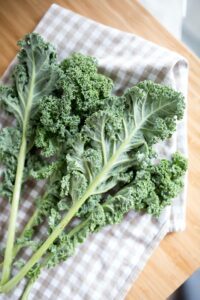 Vegan Sources Of Vitamin A (beta-carotene)
Vegan Sources Of Vitamin A (beta-carotene)
(per 3-ounces, or 85 grams)
- Kale – 7,842 mcg
- Sweet Potatoes – 7,225 mcg
- Carrots – 7,042 mcg
- Spinach – 4,777 mcg
- Butternut Squash – 4743 mcg
To conclude, liver is consistently given the title of “super food” because it is extraordinarily robust in the right kinds of essential nutrients, including for fertility and pregnancy. As with all foods, you want to source them from farms that prioritize a biodynamic way of raising animals and plants. Farms that honor the basic evolutionary and genetic needs of the animals (ie. cows able to eat grass, and chickens able to find bugs, animals not under stress, etc), are the ones that will provide you and your baby with the most healthful foods that support health, not destroy it.
Liver Preparation:
Cooked Liver & Onions is a historical taste that may need to be re-acquired.
|
Raw Liver Pills make a tasteless nutrition-packed super food, for those with the highest quality farm sourcing. This recipe is for the most dedicated ancestral wisdom followers.
Note #1: Raw Liver can also be frozen in large chunks and finely grated onto foods. Note #2: Liver pills can also be created with cooked liver! Although discussions about consuming raw products during pregnancy are beyond the scope of this article, there is no reason you need to start a practice of eating raw foods during pregnancy. |
—————————–
If you want to have clear & simple action-steps for your prenatal wellness, and awaken your inner intuition, check out Fit For Birth’s Online Prenatal Wellness Courses & Programs. These are designed to make health easy, and to use your pregnancy as a big step forward for your own health, the health of your unborn child via the 9-month epigenetic influence, and your family altogether!
Please also try out one of our FREE Weekly Online Pregnancy or Postpartum Group Exercise Classes! And consider Fit For Birth personal training for a more personalized opportunity to have fun feeling strong & fit during pregnancy.
—————————————————-
James Goodlatte is a Father, Holistic Health Coach, Corrective Exercise Practitioner, Speaker, Author, Professional Educator, and the founder of Fit For Birth. Since 2008, when he found out he would be a father, his passion for holistic wellness shifted to children and families. Today, he is a driving force in providing Continuing Education Credits for the pre and postnatal world, with Fit For Birth professionals in 52 countries. James is also the program director for Fit For Birth pre & postnatal personal training worldwide, and is a contributing member of the First 1000 Days Initiative at the Global Wellness Institute.
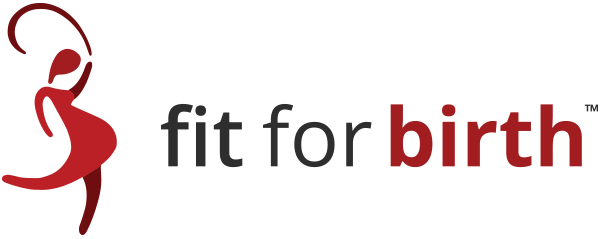

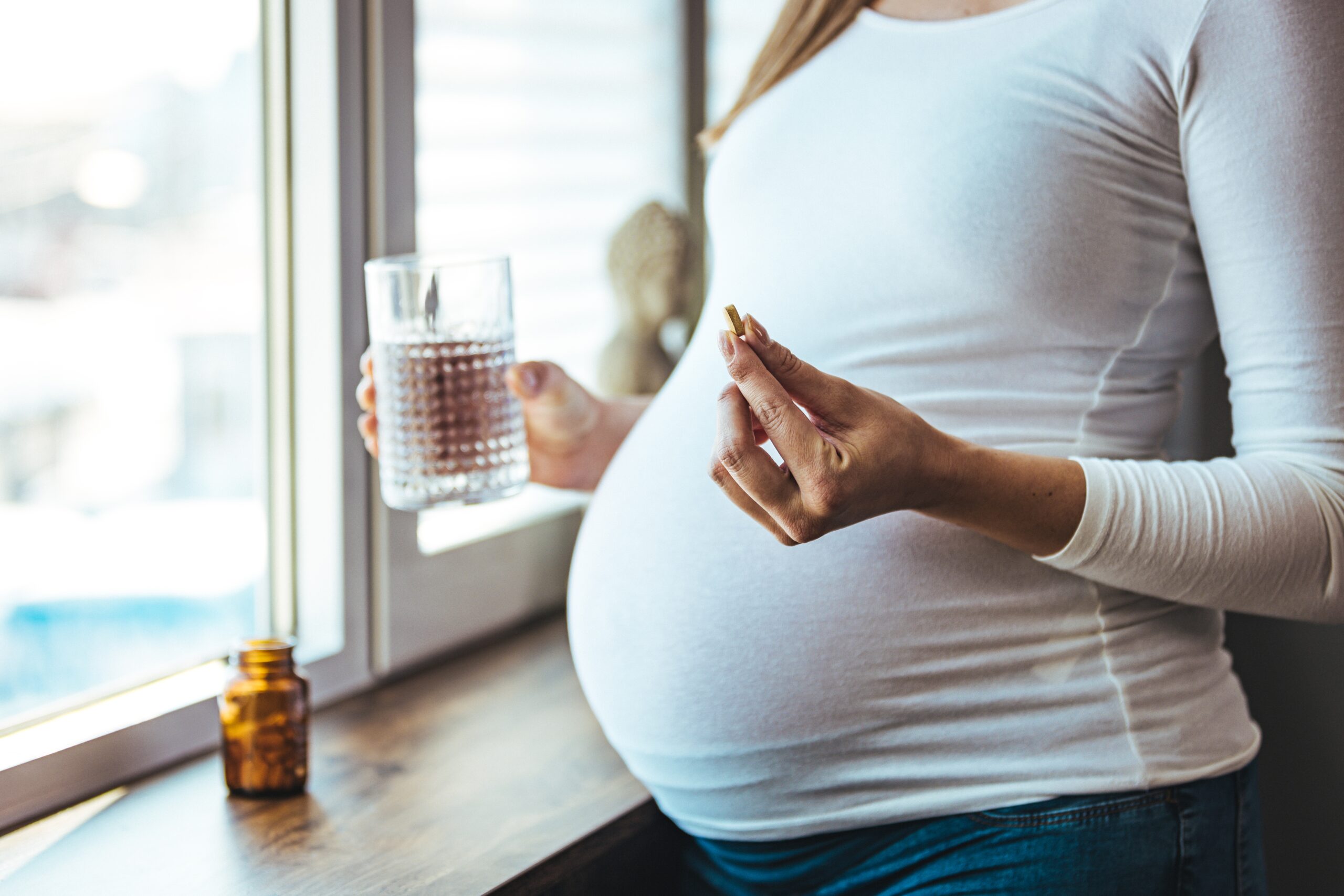

Before conceiving, I was consuming freeze dried organ supplements containing brain, uterine tissue, placenta, heart and mammary from grass-fed beef. The bottle states “Not to be taken during pregnancy or lactation”, so once I found out I was pregnant I stopped taking them. My question is, is there a proven problem with consuming these, or is it more of a precaution due to not enough research? I’m assuming it’s something to do with the hormones present in the tissue.
Thank you for your question! As you’ve suggested, this is more of a precaution than a proven problem, yes.
We are absolutely advocates of honoring what our ancestors would have eaten during pregnancy, much of which would have included prized organ meats! However, this was also at a time when the environment and animals weren’t so toxic. Toxins can store in animal products in general, and if the quality/source of your foods contain toxins, this would probably be the biggest concern.
We sent your question to an Epigenetic Nutritionist, who added: “I recommend primarily a low-toxin diet, which means that I don’t have any philosophical or political leaning except to look at how to reduce the [toxic] load…”